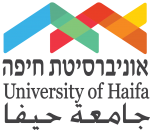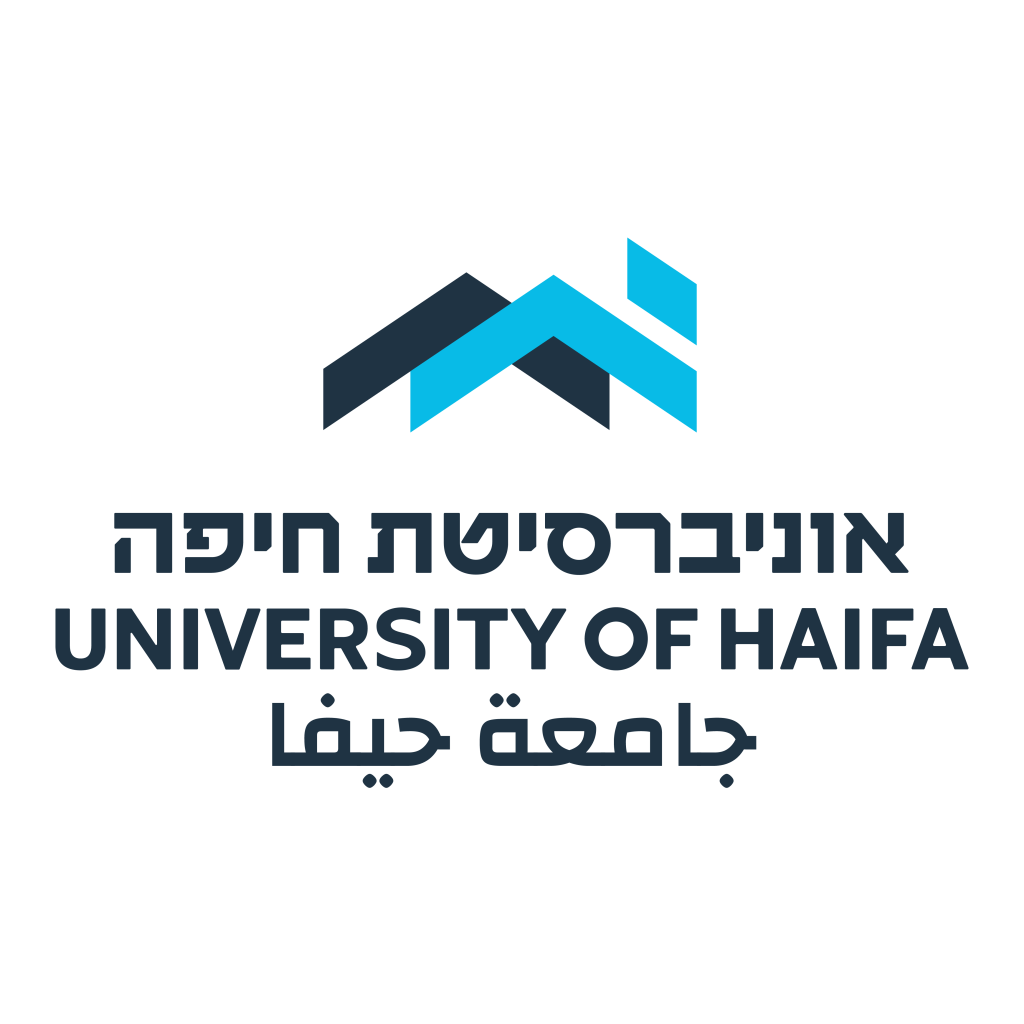
The Minerva Center for the Rule of Law under Extreme Conditions

“The Warfare of Tomorrow”
The Minerva Center for the Rule of Law under Extreme Conditions
invites submissions for
The 5th Young Researchers Workshop on Terrorism and Belligerency focusing on “The Warfare of Tomorrow”
University of Haifa, Haifa, Israel
November 13-24, 2022
Five sessions: Nov. 15, 16, 21, 23 and 24
The Minerva Center for the Rule of Law under Extreme Conditions (RLEC) at the University of Haifa, Faculty of Law and the Geography and Environmental Studies Department, invite submissions for participation in the fifth young researchers workshop on “Terrorism and Belligerency”. The workshop will be held at the Minerva Center, University of Haifa.
For previous workshops see here
- Subject-Matter of Workshop
Albert Einstein is often quoted as having said: “I know not with what weapons World War III will be fought, but World War IV will be fought with sticks and stones.” Indeed, the nature of wars and armed conflicts have changed dramatically throughout the years. From large militaries and trench warfare in WWI, to large bombardments of cities in WWII, and the use of long distance assault drones, and hypersonic missiles in current days. What do we know about the warfare of tomorrow? And what about the day after that?
Law is always one-step behind technology development, and the actual effects and impacts of cyber warfare, artificial intelligence (AI), and autonomous weapons and robots on the battlefield is unknown. Will they improve accuracy and reduce the cost of human lives in armed conflicts or are we heading towards a science fiction rendition of the “terminator” doomsday vision of war against the machines?
The Minerva Center for RLEC will hold its fifth young researcher’s workshop in November 2022. Papers are welcomed on theoretical or practical legal issues related to “The Warfare of Tomorrow” from varied disciplinary perspectives, such as history, philosophy, sociology, geography, technology, economics, politics and law.
The workshop will focus on the framework of “the warfare of tomorrow” from legal, moral, technological, comparative, and doctrinal perspectives. A non-exhaustive list of possible subjects includes:
- International law applicable to the warfare of tomorrow and possible adjustments that may be required
- Ethical considerations of future warfare
- Technological developments that will affect the battlefield of tomorrow
- The players in the warfare of tomorrow – will States remain key players or will the focus move to non-state armed groups and mega corporations?
- The treatment of victims of the warfare of tomorrow – combatants and civilians (including children and the elderly) – during and after the armed conflict
- Can we regulate the warfare of tomorrow and how?
- Purpose of Workshop
The purpose of this workshop is to convene a group of scholars for discussions on enduring and emerging questions regarding law and policy related to terrorism / belligerency. This workshop will offer participants a balanced combination of rigorous scholarly discussion and more relaxed social interaction.
- Structure of Workshop
This workshop will feature up to twelve papers selected from the submissions to this call. The expected formation will include researchers both from Israel and abroad. The workshop will be held over a 12 day period; participants from abroad will be offered residency in the university dormitories (see COVID-19 notice below).
Workshop Sessions: The participants will convene 2-3 times a week for full day sessions of presentations and discussions. During each session, selected participants will present their papers to the workshop group (approximately 20-30 minutes). Senior researchers and practitioners will be invited to the sessions to provide feedback, as well as a weekly keynote presentation. Following each presentation there will be an open discussion among the workshop participants.
Field trip: The participants will be invited for field trips, which include, inter alia, planned visits to relevant locations and institutions (such as the Israeli Supreme Court, Ministry of Foreign Affairs, Ofer Military Court, and the security wall) where they will meet with experts and practitioners dealing with issues related to terrorism and belligerency.
COVID-19 Notice: In a case where, due to travel restrictions (such as COVID-19 measures), there will not be an option to hold the event in Haifa, the organizers will provide an online alternative. However, the organizers believe that there is great value in holding the workshop in-person and therefore, priority will be given to applicants who plan to travel to Haifa and attend all sessions.
- Respondents and Guest speakers
Each young researcher admitted to the workshop will be paired with a senior respondent. The respondent will provide the young researcher constructive feedback following the presentation of her/his paper. The organizing committee will invest considerable effort into matching suitable respondents with the specific presentations.
- Eligibility
Submissions are invited from young researchers, namely PhD candidates, Post-Doctoral fellows, and scholars up to 5 years after the completion of their PhD.
- Submission Instructions
Interested scholars should email an abstract of up to 500 words along with a current CV by Thursday, July 7, 2022 to the following address: minervaextreme@univ.haifa.ac.il. Researchers asking for support for travel expenses (see article 8 for details) should also submit a letter of request. Abstracts should reflect papers that have not yet been published. Researchers should identify their submission with the following subject line: “Minerva Center— Terrorism and Belligerency Workshop 2022.”
- Notification and Participation Requirements
Successful applicants will be selected by a Symposium Organizing Committee and notified no later than Monday, August 1, 2022.
- Conditions
An invitation to participate in this Symposium will be issued to a participant on the following conditions:
(1) The participant agrees to submit an original, unpublished paper of between 8,000 and 12,000 words consistent with submission guidelines issued by the workshop conveners;
(2) The participant agrees to submit a full pre-workshop draft by Monday, October 3, 2022;
(3) The participant agrees to submit a full post-symposium final draft by March 5, 2023; and
(4) The participant agrees to acknowledge in any future publications of his or her relevant paper, “the Minerva Center for RLEC at the Faculty of Law and the Geography and Environmental Studies Department, the University of Haifa“.
- Costs
There is no cost to participate in the Workshop. Most successful applicants are responsible for securing their own funding for travel and other incidental expenses, in accordance with the following information:
Travel: In order to enable submissions from young researchers coming from developing countries, distant locations or in unique circumstances, the Minerva Center will provide partial assistance to cover travel expenses. A request letter should be included in the submission.
Accommodations: Researchers from outside of Israel are expected to stay in Haifa during the workshop. The cost of accommodations at the dormitories for this period will be covered by the Minerva Center. Researchers who choose to extend their stay or to arrange for their own accommodations will be required to secure their own funding.
Food: Light refreshments, lunch and dinner will be available at the Minerva Center throughout the workshop session dates.
- Streaming
In accordance with the ongoing practice of the Minerva RLEC, all of the young researchers’ workshop sessions will be live streamed and recorded online. We believe that almost any academic event should be live streamed, recorded, and available to the public. However, this is not a mandatory requirement and every speaker can chose to opt-out from this option for his or her own presentation. For previous recordings please visit the Minerva RLEC YouTube page.
- Questions
Please direct inquiries in connection with this Workshop to Adv. Ido Rosenzweig by email at ido.rose@gmail.com or WhatsApp at +972-(0)-525516596.
Please circulate this call widely.
- Workshop Organizing Committee
(in alphabetical order)
- Anne van Aaken, Principal Investigator, Minerva Center RLEC
- Gad Barzilai, Principal Investigator, Minerva Center RLEC
- Michal Ben Gal, Research coordinator, Minerva Center for RLEC
- Florian Jessberger, Principal Investigator, Minerva Center RLEC
- Itamar Mann, Principal Investigator, Minerva Center RLEC
- Stefan Oeter, Principal Investigator, Minerva Center RLEC
- Amnon Reichman, Principal Investigator, Minerva Center RLEC
- Ido Rosenzweig, Director of Research (Cyber, Terrorism & Belligerency) Minerva Center RLEC
- Eli M. Salzberger, The Director of the Minerva Center RLEC
- Deborah Shmueli, Principal Investigator, Minerva Center RLEC
- Stefan Voigt, Principal Investigator, Minerva Center RLEC
- About The Minerva Center for the Rule of Law under Extreme Conditions
The Minerva Center for the Rule of Law under Extreme Conditions at the University of Haifa Faculty of Law and the Geography and Environmental Studies Department, is an international venue and transnational forum – together with the University of Hamburg, for study, research, training, education and publication. It fosters multifaceted empirical and theoretical research in the study of the rule of law as a social sphere during belligerencies, natural disasters and socio-economic acute crises. Challenges to the rule of law under extreme conditions may vary under different constitutional and political regimes. The Center concentrates on democracies. The analyses examine institutional, cultural, socioeconomic and policy dimensions. Its mission includes encouraging scholars, young scientists, and students to develop data and cultivate an interactive dialogue for research and training around these issues. The Center fosters dialogue with students, scholars, experts, policy and decision makers through symposia, colloquia, seminars, conferences and a series of publications based on its research and findings. For more, please visit: http://minervaxtremelaw.haifa.ac.il

